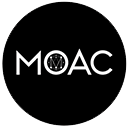Blockchain may change personal income sources in the next decade
— Exclusive interview with Zhou Sha, founder of MOAC Blockchain Inc. By China Daily
“One day you could earn a living by licensing access to personal information about your lifestyle — how many eggs you eat a day, how often you play badminton, for example — as your own tradable digital asset.”This is not an ideal scenario from science fiction, but a reality that could happen in the next 10 to 15 years benefiting from blockchain technology, said Zhou Sha, founder of MOAC Blockchain Inc. — a global blockchain technology platform.
“When the ownership of personal information can be determined, and that information could generate income, we as humans in the future will not need to work for living but work for your dreams, your aspirations and your passions,” Zhou told China Daily in an exclusive interview.
Zhou said that personal information that reflects the logic of individual behavior has commercial value, and blockchain, with its advanced encryption technology, can encrypt, confirm rights and price. Any enterprise must pay individuals if it wants to obtain such information.
“The more activities you engage in, the more you interact with other people, the more value you create, the higher the price of your personal information. In this way, people will live in a world that values cooperation, confidence and recognition of personal worth, “Zhou said.
Such disruptive changes, according to Zhou Sha, are just one aspect of how blockchain technology will reshape people’s lives and optimize the operation of world’s economy in the foreseeable future.
The integration of trust and cost reduction with the real economy has broad prospects
By improving the transparency and efficiency of various collaboration mechanisms, blockchain will help almost all industries to be more “refined”, thus accelerating the transition of China’s economy from quantity-driven to quality-driven growth, Zhou said.
For example, by providing permanent, immutable, and transparent records of transactions, blockchain technology will help implement more effective detection of project funding flows and reduce costs due to lack of trust between debtors and creditors.
Blockchain has a big role to play in easing the financing problems of small and medium-sized enterprises. Zhou Sha believes that China may launch a digital asset exchange sooner, and first consider listing digital assets to promote the financing of small and medium-sized enterprises, so as to provide financial institutions with true and reliable corporate credit and business information recorded on the blockchain.
China’s blockchain market, measured by annual spending, is set to reach $2 billion in 2023 and record a CAGR of 65.7% between 2018 and 2023, according to the Global Semiannual Blockchain Spending Guide released by international data firm IDC in 2019.
During the 2018–2023 period, China is expected to be the world’s third largest blockchain spending region after the United States and Western Europe, with its spending mainly concentrated in banking, discrete manufacturing, retail, professional services and process manufacturing, the report said.
The policy dividend will come to the urgent need to consolidate the basic technology research ability
“Suddenly, like a spring breeze in the night, thousands of trees and pear flowers blossom”, Zhou Sha described the recent warming of China’s blockchain market, and predicted that policies to support the development of blockchain will be accelerated.
The Political Bureau of the CPC Central Committee held the 18th collective study on the development status and trend of blockchain technology on Oct 2019. Xi Jinping, general secretary of the CPC Central Committee, stressed that blockchain should be regarded as an important breakthrough in independent innovation of core technology and accelerate the innovation and development of blockchain technology and industry.
Since then, the Ministry of Industry and Information Technology said that it “attaches great importance” to the development of blockchain, and will strengthen the planning and guidance of blockchain, establish and improve the standard system of blockchain, and accelerate the implementation of industrial applications, so as to promote the healthy and orderly development of blockchain.
Zhou Sha pointed out that although the development of commercial application of blockchain in China is “in full swing”, the basic technology research capacity is still insufficient, and the autonomous and controllable level needs to be improved. To this end, Zhou Sha suggested that a government-led industry investment fund should be set up for blockchain start-ups with world-leading technological capabilities, so as to fill the gap of “long money” in the current venture capital market in China and change the situation of lack of capital and talent faced by these enterprises.
Translated by MOAC Autonomous Community
Zhou Sha, whose pen name is Jingdi Wangtian, joined the high-tech industry in Silicon Valley in 1996 and has worked for HP, Alteron, Netscreen and Juniper. In 2013, Jingtum Network Technology Co., Ltd was founded by Zhou Sha in Silicon Valley, and subsequently opened branches in Wuxi, Jiangsu Province and Beijing to focus on China market development. In 2017, Zhou Sha founded MOAC Blockchain Inc. in California, USA. Zhou Sha has also invested and created affiliated companies in high-end manufacturing, artificial intelligence and biopharmaceuticals.
